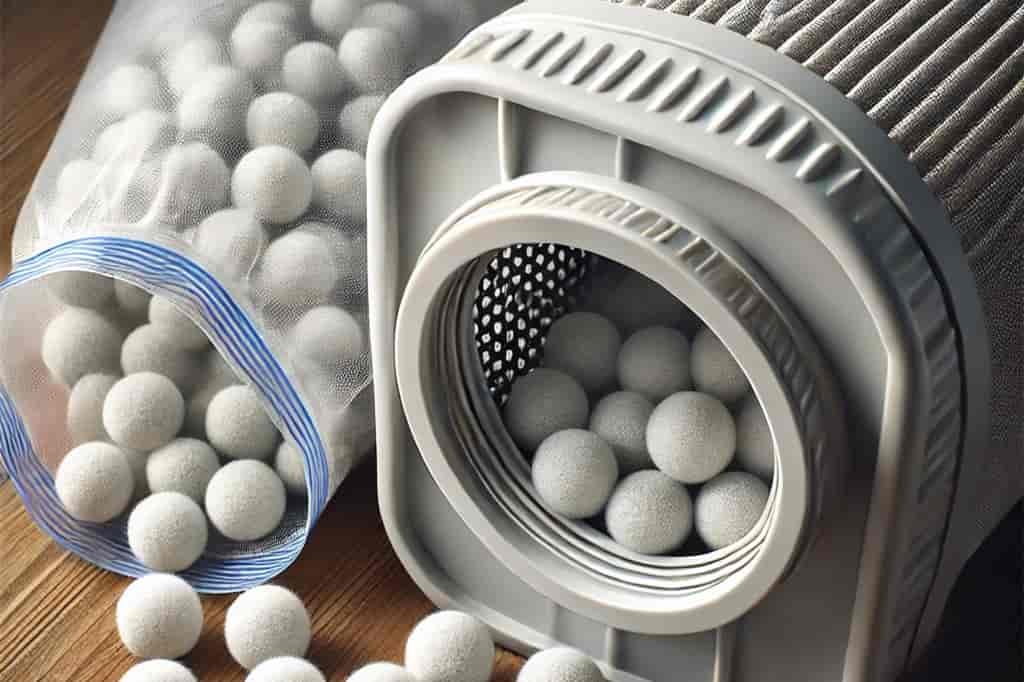When it comes to keeping your pool water clean and clear, filter balls have become an increasingly popular alternative to traditional sand filters. These innovative filtration media are lightweight, easy to handle, and boast superior filtration capabilities. However, like any pool maintenance tool, getting the best performance from your filter balls requires proper usage and maintenance. In this blog, we’ll explore various strategies to maximize the effectiveness of filter balls and address common pool filter balls problems that you may encounter.

1. Proper Installation Is Key
The first step in maximizing the effectiveness of your filter balls is proper installation. Here are some tips to ensure that they are installed correctly:
Clean the Filter Housing: Before adding filter balls to your pool’s filtration system, make sure the filter housing is thoroughly cleaned. Remove any residual sand, dirt, or debris that might interfere with the performance of the filter balls.
Do Not Overfill: When adding filter balls to the filter, avoid overfilling the housing. Overfilling can reduce the efficiency of water flow through the filter, leading to poor filtration performance. Follow the manufacturer’s recommendations for the appropriate amount of filter balls needed for your specific filter model.
Distribute Evenly: Ensure that the filter balls are evenly distributed within the filter housing. Uneven distribution can cause channeling, where water flows unevenly through the filter, bypassing some areas and reducing overall filtration efficiency.
2. Regular Maintenance and Cleaning
While filter balls require less maintenance than traditional sand, they still need regular cleaning to maintain optimal performance. Here’s how to keep your filter balls in top condition:
Backwash Regularly: Although filter balls are less prone to clogging, it’s still important to backwash your filter regularly. Backwashing reverses the flow of water through the filter, flushing out trapped debris and preventing buildup that could impede filtration.
Inspect and Rinse: Periodically inspect your filter balls for signs of wear or excessive dirt accumulation. If you notice that they are dirty or compacted, remove them from the filter housing and rinse them thoroughly with a garden hose. This will help restore their filtration capacity and extend their lifespan.
Avoid Harsh Chemicals: When cleaning filter balls, avoid using harsh chemicals or bleach, as these can degrade the material and reduce their effectiveness. Instead, stick to plain water or a mild detergent if necessary.
3. Optimize Water Chemistry
Maintaining balanced water chemistry is crucial for the effective operation of any pool filtration system, including one that uses filter balls. Here are some key aspects to monitor:
pH Levels: Keep your pool’s pH levels within the recommended range (usually between 7.2 and 7.6). If the pH is too high or too low, it can affect the efficiency of the filter balls and lead to poor water clarity.
Chlorine Levels: Ensure that chlorine levels are properly maintained. Insufficient chlorine can allow algae and bacteria to grow, leading to cloudy water that can overwhelm the filtration system. On the other hand, excessive chlorine can degrade the filter balls over time.
Calcium Hardness: Monitor the calcium hardness levels in your pool water. High calcium levels can cause scaling, which can clog the filter balls and reduce their effectiveness.
4. Address Common Pool Filter Balls Problems
Even with proper installation and maintenance, you may encounter some common pool filter balls problems. Understanding these issues and knowing how to address them can help you maintain effective filtration.
Reduced Water Flow: If you notice a decrease in water flow through your filtration system, it could be due to compacted or clogged filter balls. This can happen if the filter balls are not cleaned regularly or if they have become saturated with debris. To resolve this issue, perform a thorough backwash and rinse the filter balls.
Poor Filtration Performance: If your pool water remains cloudy despite regular filtration, the filter balls may not be effectively trapping fine particles. This could be due to a need for cleaning or replacement. Additionally, check your water chemistry to ensure that the pH and chlorine levels are within the proper range.
Material Breakdown: Over time, filter balls can begin to break down, especially if exposed to harsh chemicals or extreme conditions. If you notice that the filter balls are disintegrating or losing their shape, it may be time to replace them with new ones to maintain optimal filtration performance.
5. Upgrade Your Filtration System
If you’re still experiencing issues with filter balls despite following the best practices, it may be worth considering an upgrade to your filtration system. Modern pool filtration systems are designed to work seamlessly with filter balls and can offer improved performance and efficiency.
High-Efficiency Filters: Consider upgrading to a high-efficiency filter that is specifically designed for use with filter balls. These filters are engineered to maximize water flow and filtration, ensuring that your pool stays clean with minimal effort.
Variable Speed Pumps: Pairing your filtration system with a variable speed pump can further enhance the performance of your filter balls. Variable speed pumps allow you to adjust the flow rate, optimizing filtration and energy efficiency.
Conclusion
Filter balls offer a highly effective and convenient solution for maintaining clean and clear pool water. By following the tips outlined in this blog, you can improve the effectiveness of your filter balls and enjoy a trouble-free pool maintenance experience. Proper installation, regular cleaning, balanced water chemistry, and addressing common pool filter balls problems are all essential steps to ensuring that your filtration system operates at its best.
Whether you’re a seasoned pool owner or new to pool maintenance, investing time and effort into optimizing your filter balls will pay off with crystal-clear water and a more enjoyable swimming experience. Remember, a well-maintained pool not only looks great but also provides a safe and healthy environment for everyone to enjoy.
